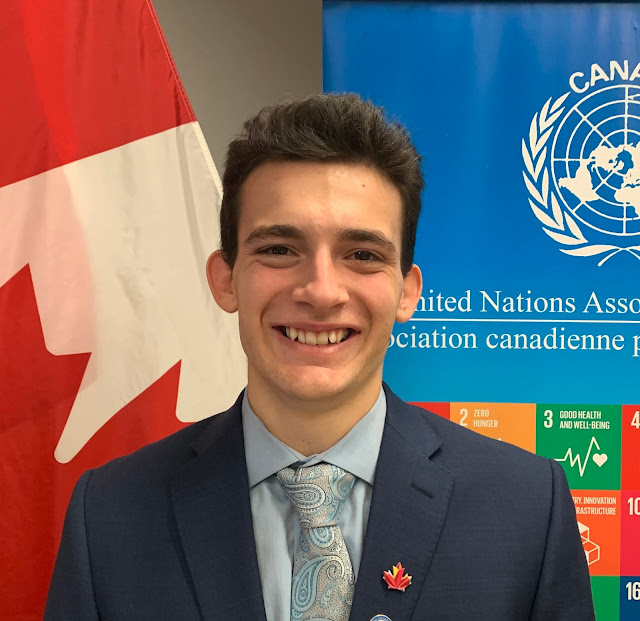Reflections from the United Nations Civil Society Conference (Maseh Hadaf)
 |
| Bears Ears Indigenous prayer runners arriving at Capital Hill. |
On my flight over the Wasatch mountain range, it hit me that I was
on route to Salt Lake City for a conference about saving the world. Most
migrant children haven’t been on airplanes since their one-ways way back—I still
gawk out the curved windows, the seat screens don’t do it for me. I would not
trade that elemental exhibit of water and light for anything. And here I was,
polluting 0.33 tonnes (according to one calculator) of carbon
dioxide on my way to save the world.
 |
| Nigerian musician Lamboginny preforming |
Perspective is important, both within and without. The 68th
United Nations Civil Society Conference (UNCSC) added dimensions of perspective
and showed me examples of interlinkages that were accelerating real impact. It
was an incredible space that brought together thousands of passionate
changemakers from around the world to focus their efforts on SDG 11, to “Make
cities and human settlements inclusive, safe, resilient and sustainable”.
It was magical.
Below I’ve shared some drops of wisdom that I gathered along the
way and intend to draw on for my future work.
Drops of UN-CSC Wisdom
 1) A circular approach to peace
1) A circular approach to peace
Inspired by the late Princess Diana, Roots of Peace was founded by Heidi Kuhn to replace mines with vines in war-torn lands around the world. This approach neglects neither planet nor people, nor mistakes that peace is the absence of conflict. Rather, they meet the immediate needs of the people (de-mining the soil they walk on) while planting seeds for an agribusiness industry that, “since 2003 in Afghanistan, [has worked with] over two dozen agricultural value chains throughout every province in the country, planting over 5 million trees, creating over 10,000 full-time jobs and facilitating exports worth over $125 million.” Their remove-restore-rebuild process is sensitive to the environmental, peace, and partnership needs of conflict-affected development.2) The synergy of inner and outer development
I discovered a common thread in discussions with youth at the mentorship circles on self-value and worth, CSO leaders and healthcare practitioners on mental health and well-being, an all-women panel of the public-private partnerships for peace workshop (including Roots of Peace), UN experts at the discussion on civil society’s role in multilateralism, and musician Lamboginny’s strategy for rehumanizing prisoners in the eyes of the public.That common thread was the need to incorporate inner development to accelerate consciousness and action towards the SDGs. I have always been fascinated by self-awareness and psychology, and this conference has demonstrated that there is a need and emerging ecosystem for this type of approach.
3) Intersections and partnerships
Diversity across identity, ideas, and interests was in no
short supply. The interconnectedness of the SDGs requires partnerships and
collaboration between all people to leave no one behind. The growing role of
the private sector in attaining the SDGs was particularly of interest, and it
was inspiring seeing examples of for-profit social enterprises (i.e. GoodR,
Hult Prize winners), Civil society-civil society partnerships (i.e. Roots
of Peace and the Leonardo) and public
icons using their platforms to shift public opinion (the actor from Disney
channel, Lamboginny).
4) Tips on applying for UN jobs
I attended a workshop on getting a career with the UN and have the following tips to share below: 1) Looking to get a job with the UN but aren’t sure where? Google UN Systems Organization Chart to get the bigger picture
2) List of network websites (that will help you find jobs): devnet (economic, social, development), infonet (public information and conference management network), itecnet (information and telecommunication technology network), legalnet (legal network), lognet (logistics, transportation and supply chain network), magnet (Management and Administration Network), polnet (Political, peace, and humanitarian network), safetynet (internal security and safety network), scinet (science network)
3) When applying for jobs on the careers.un website, don’t filter for the title of the job, filter for the position level and keep it open to all locations (titles can be misleading)
4) If you apply for a job and succeffully get on to a roster for similar jobs, hiring managers can pull your application quicker than non-roster applicants (since you have already passed one part of the screening process)
5) UN Volunteers get paid! You can be an online volunteer, youth volunteer, or specialist volunteer
6) There are various benefits of working in the UN including a competitive salary, pensions benefits, health insurance, annual leave, maternity and paternity leave, education grant (for your kids!), dependent allowance, rental subsidy, and opportunities to travel!
7) Your personal history profile should include as much relevant information as possible, more is better
8) Hiring managers are, for the most part, not experts in the jobs they are screening for, so using language from the job description is critical as that is what they are going to be referring to
9) Not all UN agencies are one the Inspira platform, you have to fill out the PHP on their websites too (i.e. UNDP)
10) It is undesirable to put ‘other’ as an option for degree type, choose an option that is relevant to the job description and mostly captures what you studied (i.e. pick health sciences if you studied global health and are applying for a WHO health programme coordinator position)
11) If you’re very proficient in a language, put fluent (don’t be humble, but don’t lie either)!
12) Your grades and the name of your university are not considered by hiring managers
13) When answering interview questions, follow this process: Context Action Result Learning (google CARL or STAR interviewing techniques)
14) When answering questions, quantify as much as possible (i.e. engaged 500 participants over 3 weeks) to help interviewers better understand your experience
Written by Maseh Hadaf.
 |
| View of Salt Lake City after a post-conference hike |




Comments
Post a Comment